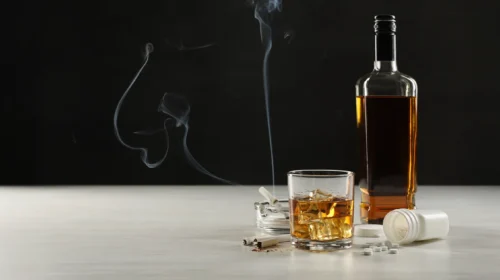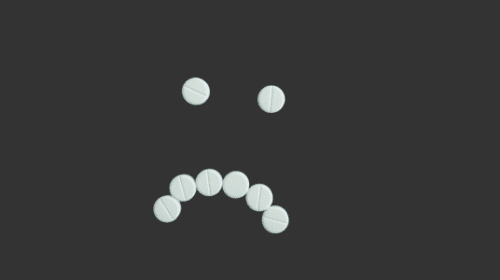Quitting heroin “cold turkey” can be dangerous, depending on how long and how much you or your loved one have been using. While it’s important to begin the process of stopping immediately, it’s also important to have a safe and effective clinical and behavioral plan in place to deal with ongoing cravings and potentially life-threatening withdrawal symptoms.
The phrase “cold turkey” is slang for giving something up on your own without any comforts or management interventions to help you abstain for good. In the case of addiction or substance use disorder, it means giving up drugs or alcohol without any treatment or relapse-prevention plan in place. When it comes to heroin, going cold turkey can not only be dangerous, but it can also be ineffective. Learn the risks and alternatives of quitting cold turkey and how to get the help you need for lasting and effective success.
Why Is Quitting Heroin Cold Turkey Potentially Dangerous?
Prolonged and untreated heroin abuse creates lasting changes in the brain’s chemistry that can take months and even years to self-correct after a person stops using. These changes trigger physical and psychological withdrawal symptoms that can be extremely difficult and potentially life-threatening.
Some common physical heroin withdrawal symptoms include:
- Nausea, Vomiting, and Diarrhea
- Pain and Fatigue
- Excessive Sweating
- Disturbed Sleep
- Severe Muscle and Joint Pain
- Accelerated or Slow Heartbeat
- Flu-Like Symptoms
- Goosebumps
- Tremors and Shaking
Some of the more extreme symptoms can include severe convulsions, seizures, and loss of consciousness.
Common psychological heroin withdrawal symptoms include:
- Anxiety and Irritability
- Erratic Changes in Mood and Behavior
- Hallucinations and Delusions
- Psychosis and Paranoia
- Moderate to Severe Depression
- Extreme Cravings
If you’re trying to quit heroin cold turkey, call your doctor immediately if you experience chest pains, persistent vomiting, trouble breathing, seizures, erratic heartbeat, or you’re struggling with severe confusion and disorientation.
What Are the Alternatives to Quitting Heroin Cold Turkey?
While quitting heroin cold turkey may not be the best option for you, quitting heroin with professional help is the recommended option for everyone. Most people who try to manage the heroin withdrawal process on their own succumb to relapse because the symptoms are just too much for them to handle. This isn’t a question of willpower; it’s a matter of the central nervous system not tolerating the extreme changes associated with abrupt cessation of heroin. The bottom line is that, rather than go cold turkey; you should explore the following services for your heroin addiction:
- Detoxification – Severe heroin withdrawal should be managed through medically supervised detoxification with the help of trained doctors and nurses who can alleviate the severity of symptoms and interfere in the event of a medical emergency. Even if you don’t think you can afford detox at a private residential facility, Medicare and Medicaid offer options. You also may be able to get help from your local hospital.
- Behavioral Rehab – It’s never enough to just “get clean” when you’re dealing with heroin addiction. Inpatient or outpatient rehab helps you form coping mechanisms, deal with internal trauma and mental health issues that initially led to drug use, and build a support system. From a logistical standpoint, it can also give you the framework to start repairing your career, your family dynamics, and your personal relationships.
- Medication-Assisted Treatment (MAT) – MAT can be an extension of the long-term detox process and offers the use of certain FDA-approved drugs, like buprenorphine (Suboxone® and Subutex®), naltrexone (Vivitrol®) and methadone to help reduce cravings and withdrawal symptoms. These drugs are not meant to be a substitute for other elements of treatment and should only be taken when approved by a qualified and credentialed physician.
The treatment provides a medical and behavioral template for long-term abstinence from heroin and offers support mechanisms and safety measures that are quitting cold turkey simply can’t.
When You’re Ready to Get Help, We’re Ready to Give It
You may have started by quitting heroin cold turkey, but make sure you have a support system in place that can help address the safety and relapse-related risks so you can stay off it for good. If you or your loved one needs help for heroin addiction, Recovery Unplugged is ready to either provide it at one of our multiple care facilities across the country or help you explore other options that fit your care needs and lifestyle. We offer medically supervised detox, LGBTQ+-affirming rehab, and multiple levels of care. Don’t spend another second suffering. We’re here to help. Contact us now to start treatment. Recovery Unplugged is in-network with most major insurance companies.

























